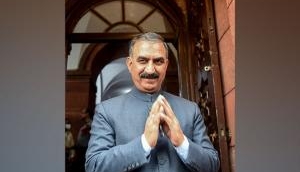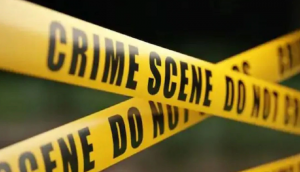
Terming the five-year ban on Islamic Research Foundation as an attack on "Muslims, peace, democracy and justice", controversial Islamic preacher Zakir Naik today said the ban was timed with the "demonetisation fiasco" to avert resistance and divert media attention.
The central government has recently banned the IRF and declared it a terrorist organisation under the Unlawful Activities Prevention Act (UAPA) for five years.
In an open letter, Naik, 51, who is abroad, said he will pursue all legal options to get the ban repealed and that the judiciary will fail the Modi government in its 'plans'.
Naik has been booked along with unnamed IRF officials under section 153-A of IPC (promoting enmity between different groups on grounds of religion and doing acts prejudicial to maintenance of harmony) beside various sections of UAPA.
"Before investigations were done, even before reports submitted, the ban was already decided. IRF was to be banned. Whether it was owing to my religion or some other reason, does not matter. What now matters is that my work of 25 years - completely lawful work - has been banned. And that is the most unfortunate thing for this country," Naik said in his letter.
"From the government's point of view, the timing itself could not have been better. The decision to ban IRF was taken in the middle of the demonetisation fiasco, as the country reeled under the self-imposed cash crunch. I won't be surprised if this ban was meant to distract media from what was going on in the country. For the public that is starved for cash, for trade and basic amenities, one cannot expect much of resistance," he stated.
Talking about UAPA, Naik said, "The law does not seem to apply to the likes of Rajeshwar Singh, Yogi Adityanath and Sadhvi Prachi who continue to make inflammatory speeches aimed at inciting communal hatred for mere political mileage."
"Leave aside legal action, the government has neither condemned their actions nor reprimanded them. Is this draconian law mainly meant for Muslims? Does the UAPA now exist mainly to silence minority groups," Naik asked.
"Let us not be gullible to think this was just an attack on me. It is an attack on whom I represent, the Indian Muslims. It is an attack on peace, democracy and justice. I will pursue all legal options to repeal this ban," the IRF founder said.
Criticising the five-year ban on IRF, Naik said: "This must be the most unique ban to be applied in the history of India, because not a single time was I questioned or given a chance to explain. Not a single chance. No notice, no summons, no calls and no contact ever made with me to get my side of the story. I kept offering my help in investigation but it wasn't taken."
He said his participation in the investigation process would have cleared up the air and exonerated him. Naik said if the bank account of Islamic International School, run by IRF, is frozen it will not be able to meet its daily expenses and future of hundreds of school children will be in jeopardy.
He also said he has complete faith in the judiciary and the government will fail in its "plans".
"The country's democratic fabric is under attack. People's lives are being played with. Governments are misusing their authority on people they're supposed to protect. This needs to change," Naik said.
Notably, the National Investigation Agency (NIA) had yesterday asked three banks to freeze 25 accounts of Naik, his family members and IRF.
In addition to it, NIA has handed over a list of over 12 people including Naik, his family members, close friends and organisations, to all 72 scheduled commercial banks to check whether these people had any account in these financial institutions.
The NIA has also written to Union Home Ministry for banning the website run by the IRF and as well as suspending its online activities which includes videos of speeches on social networking sites, sources had earlier said, adding that the request will be forwarded to Information Technology ministry.
--PTI







![BJP's Kapil Mishra recreates Shankar Mahadevan’s ‘Breathless’ song to highlight Delhi pollution [WATCH] BJP's Kapil Mishra recreates Shankar Mahadevan’s ‘Breathless’ song to highlight Delhi pollution [WATCH]](https://images.catchnews.com/upload/2022/11/03/kapil-mishra_240884_300x172.png)

![Anupam Kher shares pictures of his toned body on 67th birthday [MUST SEE] Anupam Kher shares pictures of his toned body on 67th birthday [MUST SEE]](https://images.catchnews.com/upload/2022/03/07/Anupam_kher_231145_300x172.jpg)






